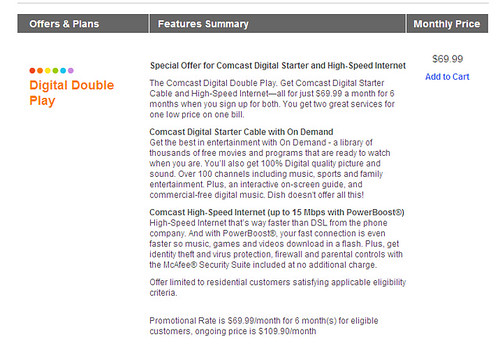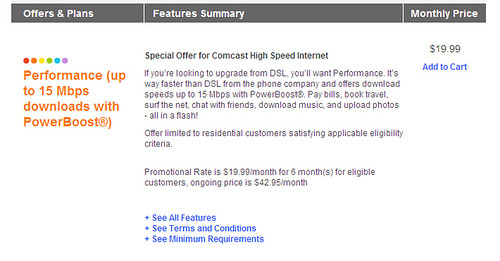from the protectionism-doesn't-work dept
There's a myth out there among some newspapers folks that "if only" the newspapers hadn't committed the "original sin" of putting content online for free, the newspapers wouldn't be facing difficulties these days. It's the kind of story that
sounds good if you don't look too closely at the details. Plenty of newspapers
did try to charge and almost all of them failed. People were never that interested in paying for news online, and plenty of new sources of news were popping up for free online anyway. Charging was a dead-end model from the beginning -- and to understand why, all you need to do is understand a little
basic economics concerning the difference between infinite and scarce goods.
However, it looks like Mark Cuban believes in that "original sin" concept, and is posting a series of blog posts to try to prevent TV networks from making the same "mistake." It started with the claim that anyone who thinks TV is going
a la carte online is crazy, because
the "content companies" will never give up the fees they earn from the networks. After a bunch of folks challenged him on this, Cuban added a second post
asking a bunch of questions, but which did little to actually answer his critics. He (like NBC Universal
execs) laughs off the "threat" of people switching to all online access to TV content, noting that very few people have done so. This surprises me, since you'd think that Cuban would be familiar enough with Clayton Christensen's work to know that just because there are only a few early adopters (and the quality isn't as good) that it doesn't mean that it's not a potential threat. In fact, those questions are basically the de facto list of questions that an "incumbent" player tends to ask when facing a Christensen-style "innovator's dilemma" just before the upstart technology really begins to hurt the legacy business.
From there, however, it just gets silly. Cuban tries to stir up some sort of moral outrage among cable subscribers, exhorting them to
call their cable companies and satellite providers demanding that they not allow any TV content online for free (as if it's their choice). His reasoning?
Those of us who enjoy this matter of life should be completely outraged that there are those who are leeching off the money we pay to enjoy tv. Our check goes to pay our bill. The money then goes to pay for the tv network, which in turn goes to pay for the content. Its a system that works.
Like any good system, there are those that want to have their cake and eat it to. The content we pay for ? They want it for free. We pay for it, they want it for free.
How is that fair ? Where is the justice ?
We pay for the content. We should be able to get it where we want it, and when we want it. Those who want it for free ? They should pay too.
Yes, and newspapers shouldn't be online for free. And music shouldn't be online for free. But they are and they will continue to be. Why? Because of those basic economics. As Saul Hansell at the NY Times points out,
this is the nature of competition. Sure, everyone would love to keep getting paid, but some enterprising content company is going to recognize that getting more attention is a lot more valuable in the long run than keeping its content locked up on cable networks. Those content providers are going to realize that by breaking free and getting the content out there, they're able to stand out against those who lock up their content. They're going to be able to score more viewers and from that, more advertising dollars. And that will hurt those who keep their content locked up -- so, they'll be forced to free up their content as well. It's just basic economics.
Oh, and as for the whole "moral outrage" bit -- it's difficult to see how people who are already pretty pissed off about constantly rising cable TV prices are suddenly going to rise up and tell the cable companies to keep on charging them higher prices by locking up content. No. It seems likely that most of those folks are pretty excited about the idea that some of that content might go free, and can actually push down cable TV rates.
Filed Under: business models, cable, economics, free tv, mark cuban, tv





